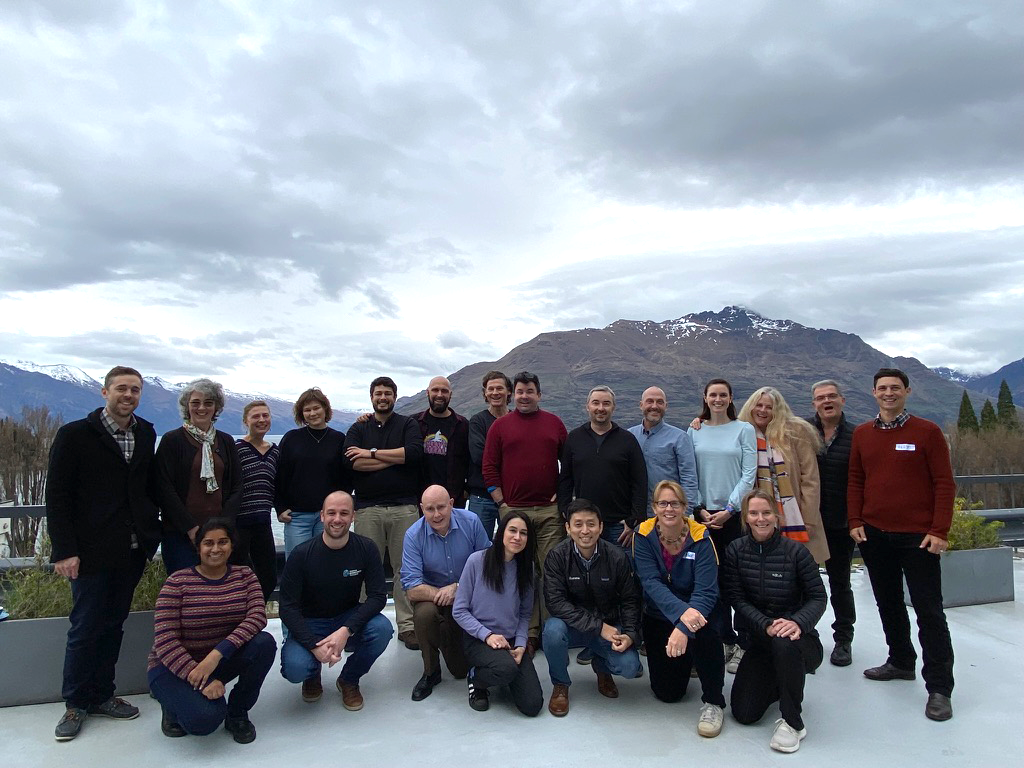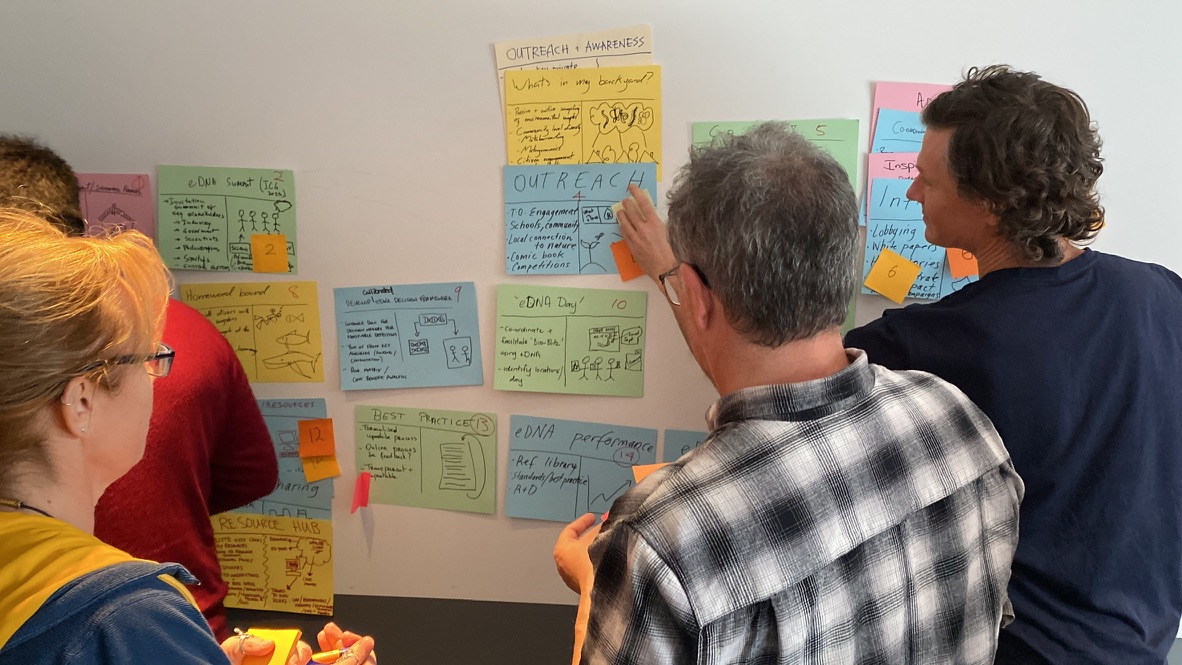Cawthron expertise helping to advance eDNA best practice and adoption
13 September 2022
Cawthron Institute scientists are on a mission to ensure new and best practice methods for capturing and analysing environmental DNA (eDNA) become industry standard due to their simplicity and cost effectiveness.
Drs Anastasija Zaiko and Xavier Pochon are helping to establish a formal Southern eDNA Society that aims to promote collaboration across science and industry throughout Aotearoa New Zealand and Australia. The Society would work to advance best practice eDNA methods and encourage adoption from government, industry and community sectors. The Society took another step forward recently by holding an international workshop in Queenstown, in collaboration with Helen Barclay from Enviro DNA and funded by Illumina biotechnology.
The term environmental DNA refers to traces of DNA collected from environmental samples (such as soil, sediment, water, air) without knowledge of the original organism. The sources of this DNA vary, but can include DNA shed through faeces, mucous, skin, eggs, pollen, etc.
eDNA methods offer universal and cost-effective ways to measure biodiversity and detect the presence of organisms in an environment, including pests. It is a fast-moving and innovative field, and increasingly government agencies and industry are adopting it to support environmental management and species detection in a broad range of areas such as biodiversity conservation, biosecurity, agriculture and environmental management.
“To help protect species, we need to know where they live, how many there are and what is causing their populations to thrive or decline. When we understand where species populations are declining, or where they are causing damage to environmental ecosystems, we can more effectively target these environments for protection or restoration,” said Dr Xavier Pochon, Cawthron Marine Molecular Ecologist.
To overcome some of the challenges associated with traditional species monitoring techniques, such as disturbing animals or requiring additional expense to undertake, Cawthron scientists have been developing molecular tools to assist with the detection and monitoring of many of our marine and freshwater species.
“Due to the simplicity and cost effectiveness of these new sampling methods, eDNA tools also have the potential to be used by a greater range of people, for example community groups and citizen science programs,” said Dr Pochon.
Currently there are no standardised approaches being applied throughout the scientific community for eDNA capture and analysis, which can lead to poor repeatability and reproducibility of studies, and confusion amongst industry adopters. These issues have the potential to hinder the broader uptake of eDNA.
Cawthron Marine Ecologist Dr Anastasija Zaiko said as eDNA starts to become more widely adopted, it’s important that leaders in this field continue to foster confidence in the methods for industry and the general scientific community.
“This is why we want to create a formal society of collective experts with the mission of enabling collaboration across science and industry in New Zealand and Australia to promote best practice eDNA methods that is adopted across government, private and community sector”.
The Southern eDNA Society is currently in an interim phase, with the formal process currently under development. The Society will be tripartisan, including members from research organisations, government and industry. Currently, four working groups have been established (Communication; Comparisons with traditional methods; Data issues and management; Standards and best practices), as well as an overarching interim management group. Working groups will follow an adaptive management approach through time, removing those becoming obsolete and adding new ones to address immediate and future needs.
Ultimately, Cawthron – and the Society – hopes for the eventual incorporation of eDNA methods into standard procedures when carrying out monitoring and restoration programmes in Aotearoa and Australia, and that they will increasingly be adopted by environmental legislation for certain activities.



